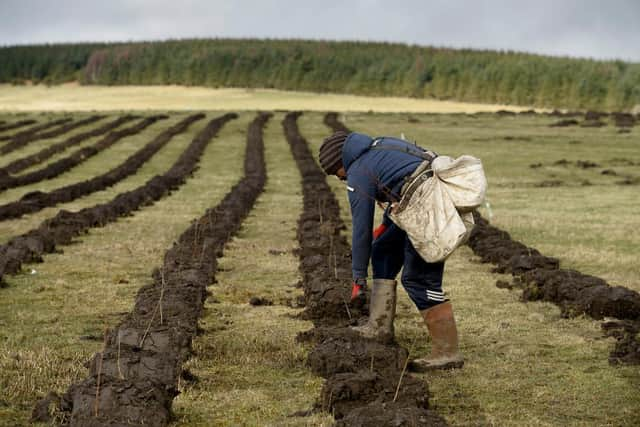Pressure increasing on fragile forests - Stuart Goodall


That reliance on imports is set to increase in the coming decades as domestic demand for timber grows further and domestic supply is forecast to fall.
In Scotland, in recent years, we’ve seen real action taken to increase planting and much of that new forest will produce the wood we use in our everyday lives and which will help us to achieve our climate change targets.
Advertisement
Hide AdAdvertisement
Hide AdThe awful events unfolding in the Ukraine have exposed Putin’s imperial ambitions and ruthless determination to achieve them, even at the cost of human lives. In response, the West has imposed sanctions and provided humanitarian and military support to the people of Ukraine.
The conflict, and the expected long-term reset in the Russian/Western relationship that accompanies it, will have fundamental implications – political, social and economic. And those implications will be felt in many quarters.
When Russia invaded, I reflected on what this would mean for the material I work with – wood. Russia is home to vast forests and it is the largest exporter of sawn wood in the world. While the UK’s direct imports from Russia aren’t huge – 6 per cent of our sawn wood and 7 per cent of wood panels – Russia provides a lot of the wood that is processed and consumed in Europe, meaning its removal from the European market will create shortages that need to be replaced.
There is also an added complication regarding Russia’s ally in the war – Belarus. It is a major exporter of wooden pallets which move products, from food and pharmaceuticals to building materials and electronics. Ukraine itself has been a major source of wood for pallets. These sources cannot be replaced overnight.
Last year we saw record prices for wood products in the UK and many people struggled to get hold of garden sheds, fences and similar products - so building projects were postponed. This is a foretaste of what is likely to come as world demand for wood soars and supply stays largely the same.
Globally, the World Bank and WWF have forecast that demand for wood is set to increase threefold or even fourfold by 2050/60.
In Europe there are few places where more forest is being grown or where additional wood supplies can be tapped into. In fact, in Central Europe we have seen huge swathes of forest damaged by beetle infestation in recent years and it is likely that much of this wood producing forest won’t be reinstated.
The impact of war in Ukraine is expected to be a further tightening of global wood supply which could last for many years.
Advertisement
Hide AdAdvertisement
Hide AdThe UK will always be a huge importer of wood products, and we have a strong regulatory system in place to ensure that the timber we import is from legal and sustainable sources, but others aren’t so strict – the pressure on fragile forests overseas will increase as pressure on supply increases.
Increased use of wood in place of carbon-heavy materials like steel, concrete and plastics is part of our strategy to tackle climate change. If wood prices rise too high, there’s a danger that the construction sector will switch to these energy intensive materials, undermining our efforts to achieve net zero.
Putin’s war is forcing governments to revisit assumptions and recalibrate policies. The rest of the UK needs to act now to follow Scotland’s lead and plan for a future where we cannot assume that wood will always be freely or cheaply available.
Stuart Goodall is Chief Executive of trade body Confor: promoting forestry and wood
Comments
Want to join the conversation? Please or to comment on this article.